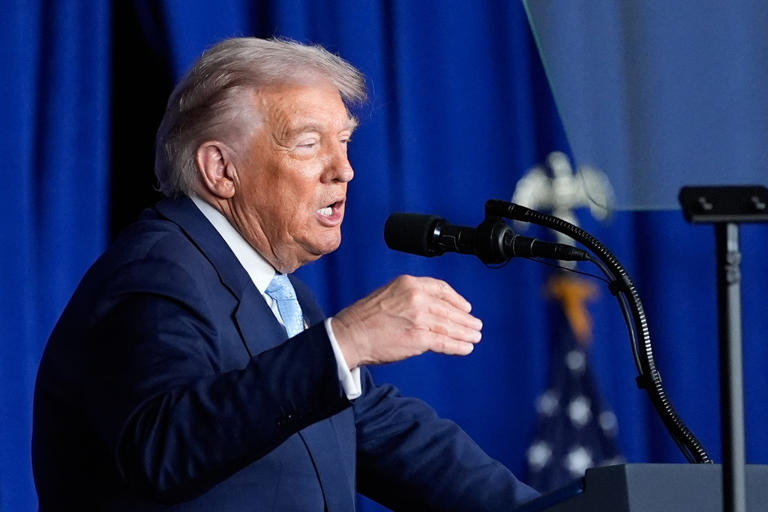President Donald Trump is facing significant challenges as he navigates concerns about affordability among Americans and a push from some Republicans to release additional files related to the Jeffrey Epstein case. These issues follow recent Democratic victories in elections and are critical as the midterm campaigns approach, which will determine control of Congress. Despite Trump’s confidence and efforts to reshape the federal government, dissatisfaction with the economy remains a pressing reality for him.
At a recent summit, Trump claimed that inflation is now at a “normal” level, although he acknowledges that many people still feel economic pressures. He emphasized his desire to further reduce inflation, though he is constitutionally unable to run for president again, which limits his political influence moving forward.
Thomas Massie’s Input
Representative Thomas Massie urged fellow Republicans to support a bill that would force the Justice Department to release Epstein-related documents, reminding them that Trump won’t be in power in 2030 to shield them from potential backlash if they do not act. Epstein, a convicted sex offender connected to many elites, continues to be a source of public outrage and conspiracy theories.
Trump Back-Down
Trump initially opposed legislation related to the Epstein case but changed his stance, signaling recognition of a shift in power dynamics within the Republican-controlled Congress. This situation highlights his diminishing authority as he tries to manage potential political losses in the upcoming midterms, fearing that a Democrat-controlled Congress could block his initiatives and investigate his administration.
Moreover, Trump is actively involved in redistricting efforts to bolster Republican chances and expressed frustration over Indiana Republicans. He announced he would endorse primary challengers for those who do not support his redistricting plans, emphasizing the importance of retaining a Republican majority in Congress.
The Pressures Increase
Affordability issues are increasingly pressing, with voters concerned about living costs. Trump admitted some consumer prices are “a little bit higher,” and he has modified his stance on tariffs, which he previously championed. Tariff reductions on certain imports are an acknowledgment that these tariffs may have increased costs for consumers. He has suggested a $2,000 dividend to Americans funded by tariff revenue, although its feasibility is uncertain given ongoing government debt and inflation concerns.
Despite these challenges, Trump presented an optimistic view of the economy, declaring that the country is “doing well. ” Recent Democratic wins in various elections serve as a wake-up call for Republicans, signaling dissatisfaction with how Trump has managed economic issues. A longtime Republican pollster noted that while the party can argue about improving prices, it must consider the tangible effects on voters, particularly regarding grocery prices, to remain persuasive.








